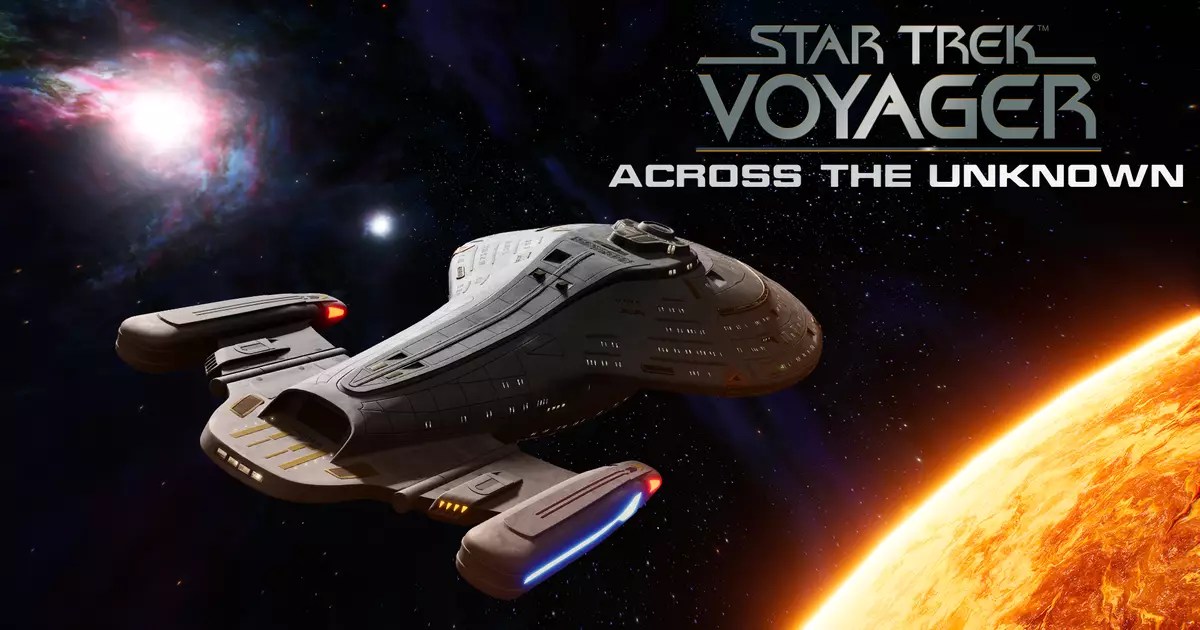Star Trek: Voyager – Across the Unknown promises to revolutionize how fans engage with the legendary starship’s saga. By integrating elements of survival strategy, resource management, and narrative complexity, this game aims to reframe the iconic journey through the Delta Quadrant into an interactive experience unlike any before. While rooted in nostalgia—drawing from cherished characters like Janeway, Chakotay, Seven of Nine, and Harry Kim—it boldly ventures into uncharted gameplay territories that challenge players to think critically about moral dilemmas, crew dynamics, and tactical decisions.
What makes this project particularly compelling is its ambition to blend traditional storytelling with a rogue-lite approach. Instead of simply replaying familiar episodes, players are invited to craft their own what-if scenarios—altering the fate of Voyager and its crew. This opens up an expansive canvas for fans eager to see beloved characters in new lights or witness alternate destinies. It’s an audacious move, one that attempts to marry the core appeal of Star Trek’s philosophical depth with modern gaming trends. However, this fusion also introduces a significant question: can strategic gameplay honor the nuanced storytelling that Star Trek is known for, or does it risk diluting the franchise’s integrity?
Gameplay Mechanics and Their Impact on Immersion
The core mechanics of Voyager – Across the Unknown revolve around managing ship systems, engaging in diplomacy, and making morally complex decisions. The resource management aspect echoes known titles like XCOM, where every upgrade, repair, and technological research carries weight. The inclusion of ship customization, with facilities to improve onboard systems, adds a layer of depth that incentivizes continuous engagement. Yet, the preview hints at a less-than-enthusiastic perception of the gameplay movement—top-down, solar system navigation that appears somewhat simplified and disconnected from the grandeur of the original series. This design choice might undermine immersion, making the vastness of the Delta Quadrant feel more like an abstract map rather than an awe-inspiring expanse to explore.
Where the game truly shines is in its away missions, a feature that allows players to assemble teams from named characters or redshirts, applying real-time tactical decisions based on their skills. The freedom to risk tactical headlong charges versus scientific cautiousness offers a meaningful sense of agency. Still, the success of these decisions hinges on how well the game balances challenge and consequence—something rogue-lite titles tend to struggle with when the randomness hijacks player agency.
Ship-to-ship combat promises to be a highlight, requiring hands-on crew management and system targeting that should evoke tension and strategic thinking. However, the implementation details remain vague, raising questions about whether the combat system will evolve beyond a simple mini-game or become another predictable routine.
Nostalgia vs. Innovation: The Balancing Act
The game’s appeal largely rests on nostalgia—revisiting Voyager’s crew and their stories, but with a fresh twist that invites experimentation. The promise of a “what-if” universe is tantalizing, especially for fans who have long imagined alternate scenarios, like Janeway becoming Borg Queen or the Doctor captain. This flexibility could serve as a powerful narrative tool, if executed with care.
Yet, there’s an underlying tension. The developers’ background in Asterix adaptations hints at a niche experience that may not align neatly with the sophistication of a space-faring strategy game. Does this mean the game might underdeliver on its potential for depth? Or could it surprise by incorporating humor and whimsy that enrich the core tactical experience? The absence of a release date fuels both anticipation and skepticism—fans are eager yet cautious about whether this project can deliver on its lofty promises.
Ultimately, Voyager – Across the Unknown is more than just another Star Trek game; it’s an ambitious experiment to reinvent fan engagement through gameplay. It may not perfectly capture the philosophical richness of the series, but if it can successfully marry strategic depth with compelling storytelling, it could become a pivotal addition to the franchise’s legacy. The key lies in whether it can transcend nostalgia and truly foster meaningful interactions within its universe—or if it ultimately defaults to formulaic mechanics that leave players yearning for more.


Leave a Reply